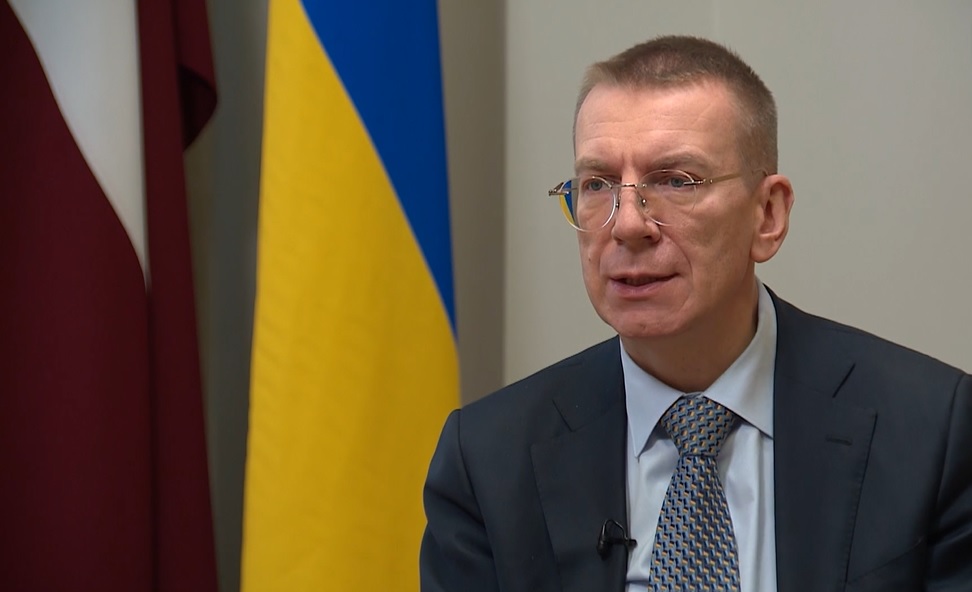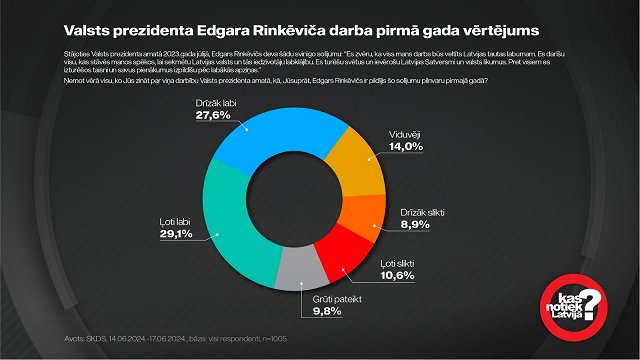One name bandied about was long-serving Foreign Minister Edgars Rinkēvičs. Having taken up his current post back in October 2011, Rinkēvičs is by some distance Latvia's longest-serving Foreign Minister of all time. His track record is solid, he has been a staunch supporter of Ukraine for many years and a stern critic of the regime in Russia – all of which would fit the bill with regard to Levits' declaration that a unity candidate must continue Latvia's western-oriented approach.
After several hours of busy debate on social media by political-watchers, Rinkēvičs confirmed Thursday afternoon that he was willing to put his name forward as the candidate of his party, Jaunā Vienotība (New Unity), while stressing that the role of President requires "absolute political neutrality" regardless of previous party affiliations. In any case, it is customary for Latvian Presidents to sever ties with their political party upon assuming the presidency.
Explaining why he agreed to having his name put forward, Rinkēvičs said that the current period with "war in Ukraine, war not far from our borders" means that matters of external security are paramount, but that rapid domestic development in the economy, the legal system and civil rights are also important.
His extensive international contacts and experience would allow him "to fulfill the duties from day one without any warm-up period".
Party colleague Prime Minister Krišjānis Kariņš said that a Rinkēvičs presidency would not only signal that Latvia was continuing its western-oriented path "but is even strengthening it."
"Among all our country's most active officials and politicians, Edgars Rinkēvičs is probably the most outstanding, most qualified person there could be for this post," said Kariņš, reminding journalists that Rinkēvičs had previously worked at both the Ministry of Defense and the Presidential Chancellery.
While undoubtedly capable and calm, Rinkēvičs is not considered particularly charismatic as a public speaker – which may count against him for the role of head of state, or may not. However, he is an effective communicator in English, French and Russian as well as Latvian and is well-known and well-respected internationally – all useful attributes in a President.
During the morning's discussions, Lelde Metla-Rozentāle, assistant professor of the Department of Political Science at Riga Stradins University, told Latvian Radio Rinkēvičs is a popular politician with domestic and international political experience.
"Putting such a player on the field makes the game more intriguing," said the political scientist.
Another political commentator, Filips Rajevskis agreed that Rinkēvičs would be a strong candidate on LTV, but criticized Levits for giving up "without a fight" for the necessary votes and only being willing to run if victory was guaranteed.
The entrance of Rinkēvičs into the fray will put pressure on the first declared candidate, Uldis Pīlēns of the United List, which is one of the three political groupings in the coalition (alongside the National Alliance and New Unity, both of which previously supported Levits).
Levits invited Pīlēns to stand aside so that a candidate acceptable to all coalition parties might run. Pīlēns has so far shown no inclination to do so, as the support of United List plus all opposition Saeima members would give him the 51 votes needed to secure the keys to Rīga Castle for four years. However, doing so might alienate the United List's coalition partners and could potentially lead to the collapse of the government.
Also on Thursday the opposition Progressives named their presidential candidate as Elīna Pinto, as outlined in this story earlier, bringing the total number of contenders so far to three, with nominations remaining open until May 13.
For more on how Latvia chooses its President see this handy guide.




























